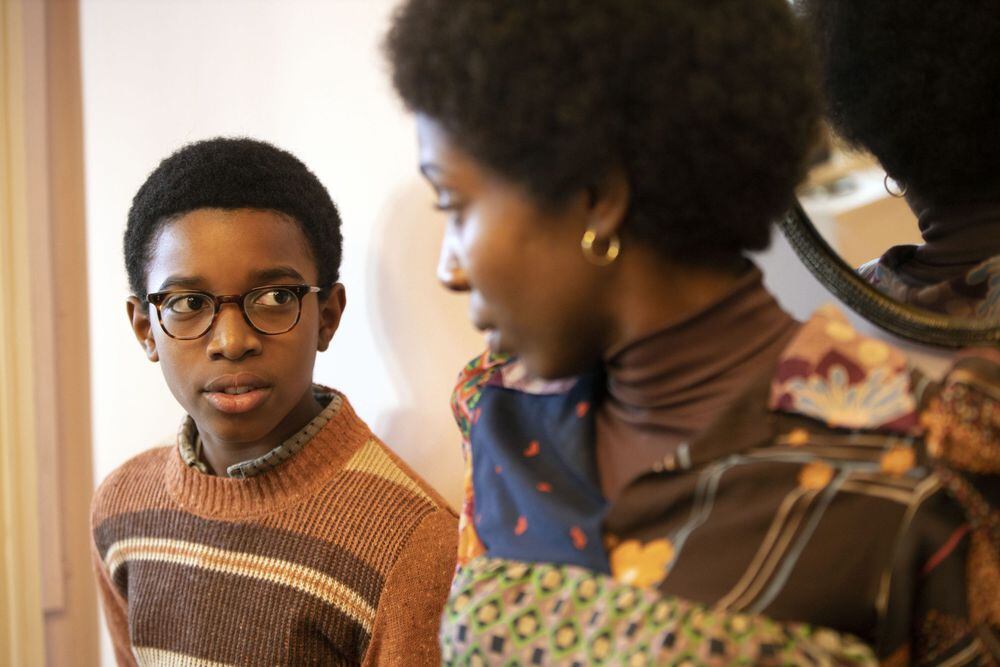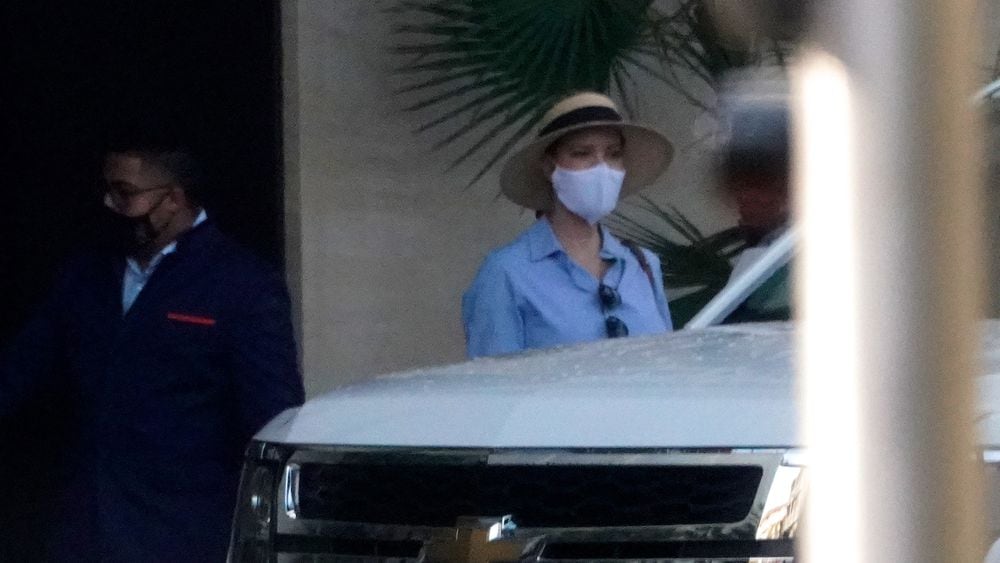Kingsley is 12 years old, with a self-absorbed father, a moonlighting mother and an older sister who dreams of entering the world of fashion. He also has his dreams: he wants to be an astronaut and, if that is not possible, play for Tottenham Hotspur. But Kingsley, played by newcomer Kenyah Sandy, is a clueless boy, with a scattered thought, something quite normal for a child his age. If it were white, this could be fixed with reinforcement classes and some other punishment. But Kingsley is black. And in the early 1970s in the UK, black children who had some of the deficiencies that he has were immediately sent to special education schools. In the first five minutes of Education, the fifth and final episode of Small Axe (Movistar +), we are already taught how complicated it is going to be for this child, inspired by the educational experience of Steve McQueen himself, to achieve his dreams. In a reading class Kingsley is lost, it seems that he cannot read; If you haven’t memorized it, you don’t know. The same thing is that he cannot read, but it is clear that, at that school, they will not teach him to read. Immediately afterwards, Kingsley leaves class with his two friends – an Indian and a white – they talk about what they want to be when they grow up. He claims he will be an astronaut. The white boy tells him that blacks cannot be astronauts. Here we go.
Kingsley is sent to a school where basically what they do is store the children for a while. It’s a disaster. Teachers, when they are not bitter and racist people, are adult replicas of children with learning disabilities. When Kingsley asks what he is supposed to do during a break, a teacher suggests that he climb a tree, as, he claims, Kingsley’s ancestors have done in that jungle from which they have all come. At this point in the film, written with great subtlety by Alastair Siddons and McQueen himself, the viewer can sense a certain racism, but it seems clear that Kingsley has learning disabilities. We are prepared for a story of self-improvement, not one of institutional racism — Hollywood could make a remake in thriller format. Even his mother believes that everything is the child’s fault. There doesn’t seem to be anything perverse in the system, just a lack of resources, sloppiness and a certain racist lean that, at this juncture and in these films, is almost part of the landscape.
But the story takes a brilliant turn the moment a black psychologist steps into action. Hazel is a former teacher who shows up at the school to gather information to confirm her suspicions that the Kingsley case, and that of thousands of other Afro-Caribbean children, is part of a plan to remove them from the education system. When Hazel meets Kingsley, she immediately sees in him another case of a black boy who has given a slightly below average result on his IQ test and who, with the excuse that he is lower than the school average, has been sent to this hole. Lydia, a former parliamentarian, is the one who with Hazel’s help is working to unmask this plan. When she explains it to Kingsley’s mother, she doubts this is all true. Her child is somewhat short and she has to go out in a while to scrub floors. But Lydia convinces her that there is something wrong there. Towards the end of the film, they will send a letter denouncing all this to the then British education minister, who is none other than Margaret Thatcher. If there is any hope in this film, it certainly does not come from this scene.
Shot in a much more spartan style than previous installments, Education has much to do with the cinema of Alan Clarke or even with that of Ken Loach that the Sorkinian Mangove or that long video clip that is Lovers Rock. The interiors have no glamour vintageThere is hardly any music and the wardrobe is so basic that for once, it really looks like something out of a charity shop and not a second-hand clothing store in a trendy neighborhood. In addition, McQueen decided to shoot this installment in 16 mm and with the same saturation used in television at the time in order to improve the appearance of white skin on screen. Education is the most narrative and thoughtful of all the films of Small Axe. Also the most feminine. Activism is their thing and perhaps that is why it is less pamphlet and much more concrete. That this is the last tape of the five redeems even the previous ones from some of their sins; by action, in the subtle nothing Mangrove, and by default, in the overly ornate Lovers Rock. Education it is the most beautiful because it is not pretty.
–


